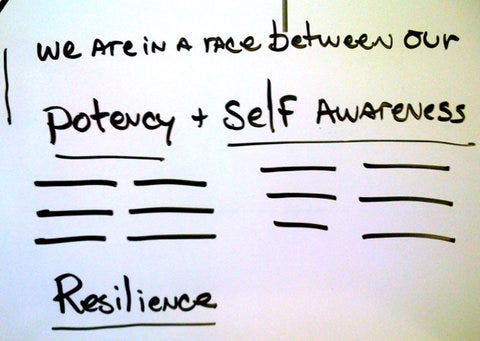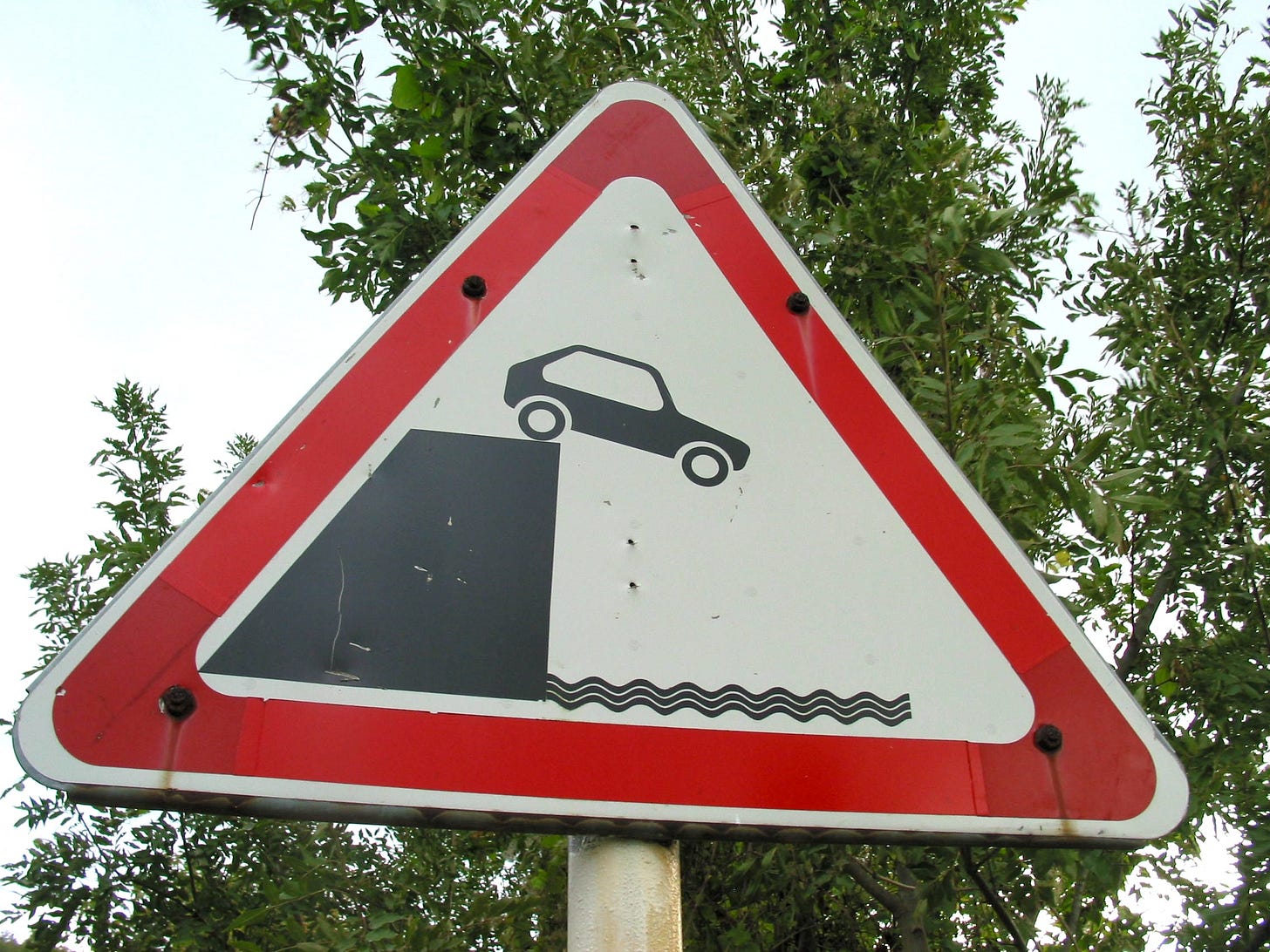When I started my New York Times Dot Earth blog in 2007, the framing question was “9 billion people + one planet = ?”
I kept asking people far smarter than me if the rapid acceleration and expansion of human potency was destined to outrun the capacity to foresee and avert unanticipated harmful consequences. This scribble from the whiteboard I designed the blog on (with the brilliant Jeremy Zilar) further noted this isn’t just about awareness of biogeophysical threats in the external environment, but also self awareness - understanding the limitations of what our cerebal and reptilian brains are capable of. (Read my reflection on the scariest science I’ve encountered for more.)
I’m always on the hunt for more work on such questions and a few months ago, I began digging in on the valuable and somewhat disquieting research of Tim Waring, a University of Maine associate professor who describes his interdisciplinary journey this way:
“I study the human species like an alien biologist. I specialize in human cultural evolution in the past, present, and possible futures. And I apply the science of cultural evolution to the environmental sustainability human systems.”
In that quest he reminds me of three other scientists working hard to assess what makes for intelligence at planet scale and where that might lead - for better or worse. They are Adam Frank, David Grinspoon and Sara Walker. Scroll down for a look at their individual and collaborative research asking if planets can be “smart” and what becomes of them if and when that happens.
Zooming with a cliff ahead?
Waring’s latest paper posits that H. sapiens’ capacity for cultural evolution, which has accelerated and spread energy and resource use way beyond what biological evolution could do, may prevent us from overcoming human-driven climate change and other threats emerging as infinite aspirations bump up against planetary limits. He calls for greatly intensified research on related questions.
The paper is “Characteristic processes of human evolution caused the Anthropocene and may obstruct its global solutions” and is from a special issue of Philosophical Transations of the Royal Society B - ‘Evolution and sustainability: gathering the strands for an Anthropocene synthesis’.
I hosted Waring in a recorded Sustain What conversation that you can listen to or watch above. (I’ll be streaming the conversation shortly but you’re first in line.) I apologize for the video lag; I’m not sure what caused that. But I think you’ll find him fascinating. Here’s a pretty downbeat conclusion of the paper, which was co-authored with Zachary T. Wood and Eörs Szathmáry:
















